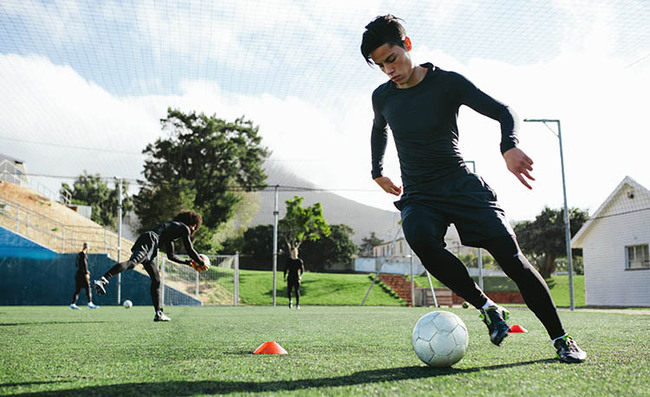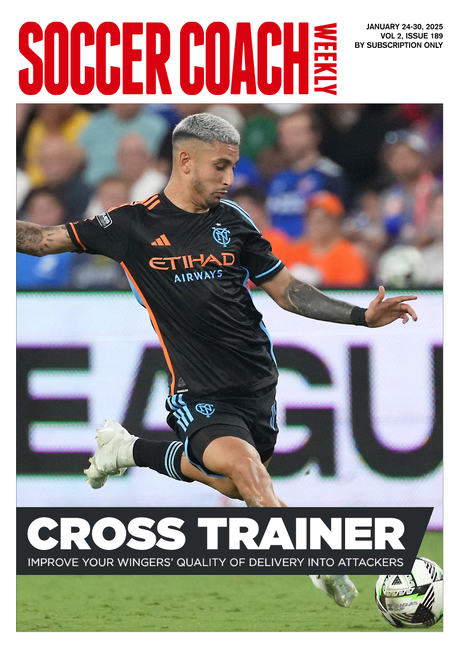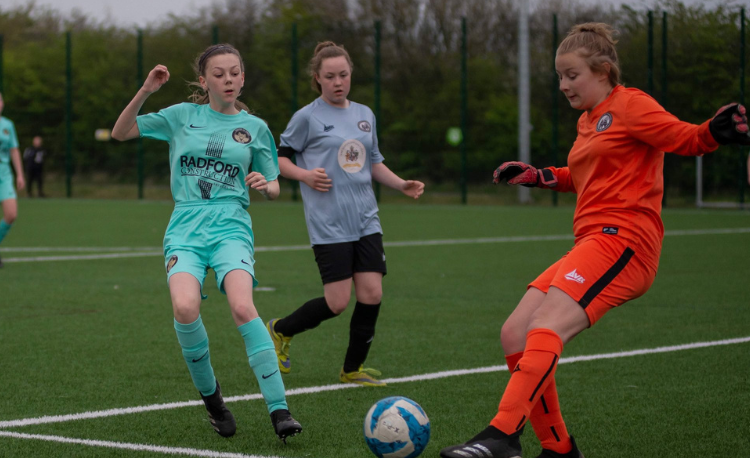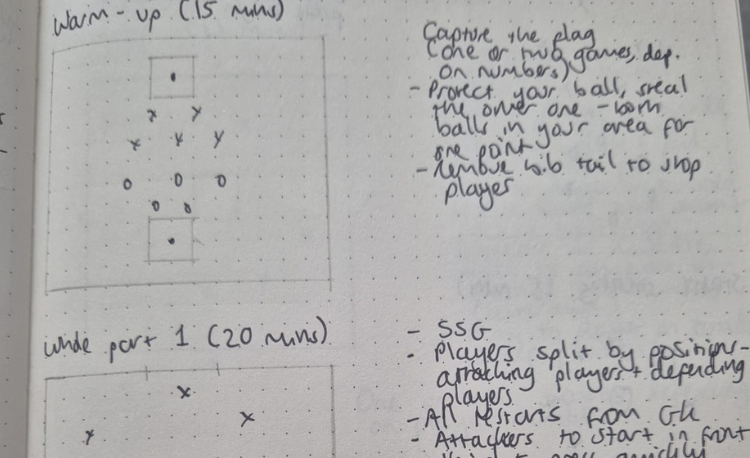Learning through chaos
When I think of coaching, two sayings come to mind - "There is no teaching until there is learning going on" and "Football is chaos; coaching is organising the chaos" writes James Tolley.
I want to delve into what coaching actually is.
It might seem obvious to some, but when you dig a little deeper, there is a lot more behind it.
When I think of coaching, two sayings come to mind - "There is no teaching until there is learning going on" and "Football is chaos; coaching is organising the chaos".
In my opinion, coaching is a combination of the two quotes. The most successful coaches understand that if they cannot effectively communicate their messages, the players they are teaching do not learn. And if the players do not learn, there is no teaching going on - you are merely delivering a session, not coaching one.
A coach should have the ability to communicate a complex point through a short, memorable phrase that is repeated, to give players - particularly younger ones - the best opportunity to learn.

One way I have developed as a coach is by videoing and reviewing my sessions, and studying how successfully I communicated my coaching points, and whether learning outcomes were achieved by the end of the session.
And what of chaos? Well, constructive soccer coaching is appreciating the chaos that game-related practices involve.
We would all love to be the best coaches we can be, for our players’ sake, but do
we embrace the chaos of a game-related practice fully?
Think about it this way. What does the sport look like in the best developmental places in the world?
Players like Lionel Messi, Ronaldinho, Diego Maradona and Pele all grew up playing on small pitches with many more players per side than would be played in England, for example. And these players are among the most technically gifted players of their time.
What this shows is that the best way a player learns is through trial and error
learning - making mistakes and correcting them.
This is a process of skill acquisition that involves the brain insulating neural pathways with a protein called myelin. I am no expert in this field but, to my understanding, this is why the more you repeat a skill, the more proficient you become at executing it - the neural pathways become more insulated each time you execute the skill effectively.
What does this mean for how we coach in our own sessions?
"If players do not learn, you are delivering a session, not coaching one..."
Well, the Football Association and its England DNA philosophy is big on player ownership and trial and error within sessions, which I have no doubt is valuable.
But I also believe, as coaches, we can use chaos to organise sessions that allow us to coach what we need to, while giving our players ample chance to try things, make mistakes and then correct them to allow their brains to efficiently myelinate the pathways for that particular skill.
From the observations I have made of the best coaches and teachers I could watch, and some research into how skills are built (mostly taken from The Talent Code, by Daniel Coyle), I have realised that effective coaches allow players to play in the natural chaos of the game, but intervene with a short, sharp piece of communication that corrects or reinforces the coaching points made in a more organised practice.
The players are then given the chance to reattempt the skill with correct technique, and so can acquire the skill through repetition.
I believe coaching is best done through organising the chaos of the game in such a way that we can teach effectively by allowing players to try what we teach them over and over again - "repetition through competition" - with the added short phrases referenced earlier to correct or praise technique.
Related Files
Newsletter Sign Up
Coaches Testimonials

Gerald Kearney, Downtown Las Vegas Soccer Club

Paul Butler, Florida, USA

Rick Shields, Springboro, USA

Tony Green, Pierrefonds Titans, Quebec, Canada
Subscribe Today
Discover the simple way to become a more effective, more successful soccer coach
In a recent survey 89% of subscribers said Soccer Coach Weekly makes them more confident, 91% said Soccer Coach Weekly makes them a more effective coach and 93% said Soccer Coach Weekly makes them more inspired.
*includes 3 coaching manuals
Get Weekly Inspiration
All the latest techniques and approaches
Soccer Coach Weekly offers proven and easy to use soccer drills, coaching sessions, practice plans, small-sided games, warm-ups, training tips and advice.
We've been at the cutting edge of soccer coaching since we launched in 2007, creating resources for the grassroots youth coach, following best practice from around the world and insights from the professional game.






